Puppy Ate a Sock [What To Do]
Puppies of all breeds are renowned for getting into things they probably shouldn’t be getting into… and eating them.
And socks are one of the usual suspects.
But what do you do if a puppy ate a sock? Does a dog’s weight and stomach size influence the next steps?
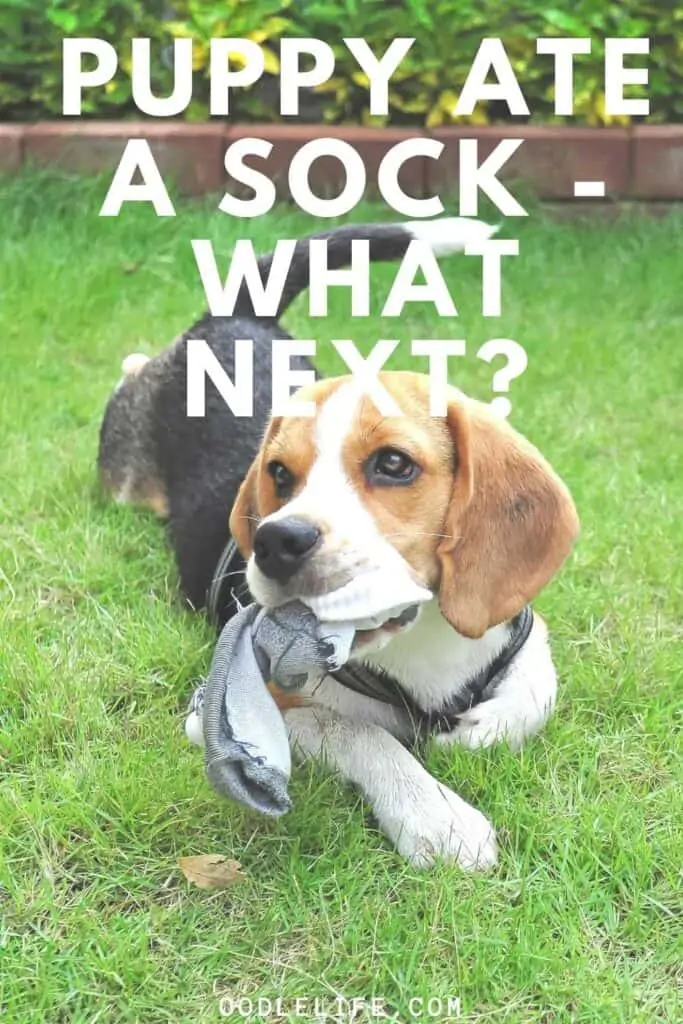
All dogs enjoy chewing, and eating anything within their reach due to their curious nature. And socks are one of the easiest items to misplace, and leave around the house for your dog to munch on.
Anything that is not food that is eaten by a dog is called a foreign object can can be a problem for a dog owner, puppy and Vet.
When it comes to puppies (or small dogs in general), the action of eating a sock can become extremely problematic because it can easily obstruct their passageways.
For adult dogs, there is a greater chance of the item passing through without causing too much damage.
So is an eaten sock a cause for concern?
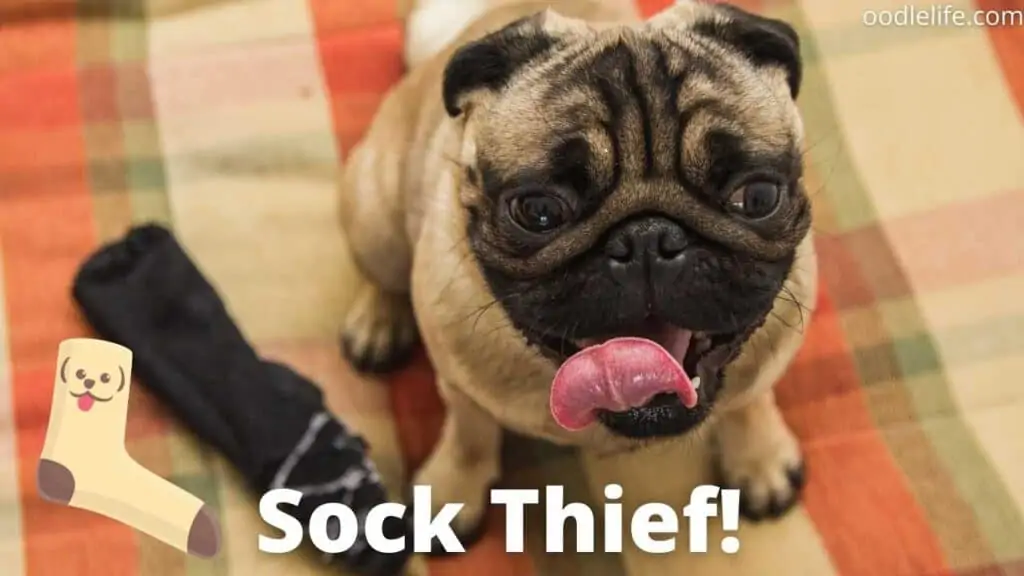
However, a dog’s digestive system (much like a human’s), is built to dissolve everything into a malleable waste to allow it to pass through our intestines freely. Absorbing all the necessary nutrients in the process.
Although this means that the intestines are not equipped to handle anything that can hold it’s shape (like a sock), meaning there is a greater risk of the sock becoming lodged in this area.
Which is why regardless of whether or not you’re dealing with a puppy, or an adult dog, if you see them consume a sock (or any other clothing), you should reach out to a vet for advice.
If you’ve reached this page, you are probably wondering… “ok, now what?”
My puppy has eaten one of (or multiple) socks, and so NOW what do we do?
Beyond seeking professional advice, we will go over all of the potential options below.
What to do when a puppy eats a sock?
If your puppy eats a sock many thoughts are likely to race through your mind of all the potential (negative) outcomes. And the #1 thing you can do to ensure that the puppy is safe is to…
Seek Vet Advice
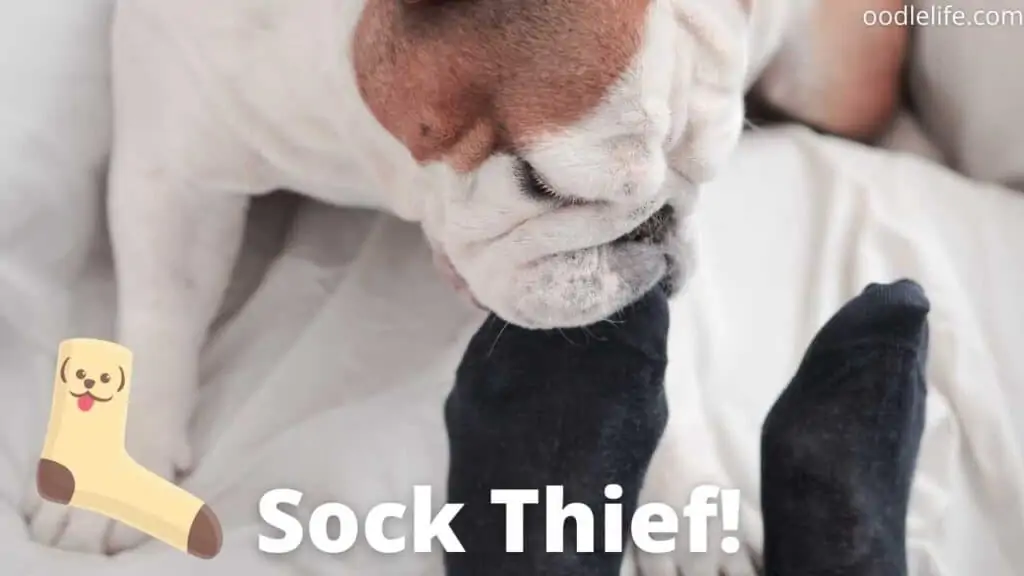
If you’ve run into this scenario then the absolute best thing you can do is take your puppy straight to the vet. Especially because puppies have smaller digestive tracts, and are at a greater risk of developing health concerns from consuming the sock.
But by taking your pup to a professional, then the Vet can decide what the best course of action is. If you let it rest for too long without letting the experts look at what’s going on, it could create a greater chance for gastrointestinal tract surgery down the road.
For adult/larger dogs there is a better chance of the sock passing through, but even still if after 3 days nothing has come out you should reach out. Inedible objects can block the small intestine and be very serious.
If your vet does see that there is a problem, they will likely decide to either pump the stomach, or induce vomiting to remove the sock (assuming you reach the vet right after the event). This is the first route many professionals take to removing items that make their way into the intestines, past this more serious steps are taken (emergency surgery or exploratory surgery).
Even if you can’t take them directly to your Vet right away, you should at least call them, and seek advice over the phone.
They may simply ask you to induce vomiting yourself, in which case they would give you instructions on a safe way to do so (typically diluted hydrogen peroxide but some Vets like other methods). If after 3 hours you begin to notice that nothing’s changed, and your dog is feeling sick, then take them to the Vet immediately.
How to stop a puppy chewing socks
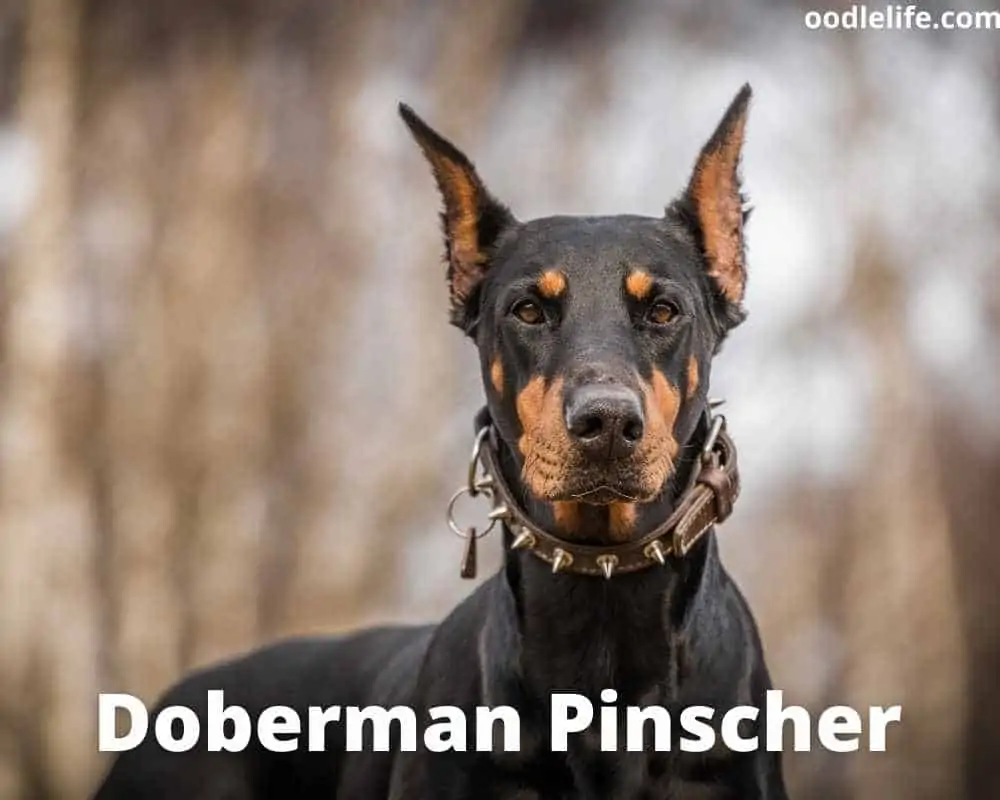
Be Attentive
Potentially the most obvious tip is to keep an eye on your puppy at all times! Dogs of any age are unpredictable, and notoriously curious, but especially when it comes to puppies. Much like a human baby, puppies will put anything in their mouth if it’s within arm’s (or paw’s) reach.
Leave an alternative scent
If you find yourself in a situation where you have to leave the pup alone for a bit, then try and leave your scent with them too. Try rolling your puppy’s favorite toy or nylon bone in between your hands before you leave.
And try not to make a big deal as you leave as well, as this could eventually cause separation anxiety.
Another option that many pet owners opt to go with is to leave the radio/TV on for the puppy for the time they’re home alone. Keep it on a low volume, and your pup should be calm, cool, and free of anxiety.
Stay Tidy, Avoid Problem
This one is likely the most obvious, and yet should not be ignored. You should always put away anything that your dog can get into, and keep in mind that even the most unassuming pups can develop nasty chewing behavior from you leaving certain items around the house.
Pay extra-close attention to things like shoes, children’s toys, clothing, plastic bags, medicine containers, wallets/purses, plants, etc.
Dogs (especially puppies) can, and will get into just about everything if left unsupervised. Which is why if you are going to leave them by themselves, a safe rule of thumb is to remove any potentially harmful items from their environment.
Pick Good Dog Toys
Make sure that you are extra careful when you are trying to pick which dog toys for your puppy to chew on. Many dog toys have pieces that can fall off or be chewed off, becoming a choking hazard.
Nylon bones are a great option for example, because they are extremely durable, safe, and non-damaging to the dog’s teeth.
When it comes to rubber toys, make sure that the material is strong enough that it can’t be shredded into pieces for your dog to swallow. And always replace the toy once it falls apart, or reaches a size where it can be swallowed.
More Exercise, Less Chewing
Another tremendous tip for preventing these destructive behaviors is by giving your dog more exercise. Puppies in general do not require a ton of exercise, but if you notice these types of negative tendencies.
Then adding in more (age/breed-appropriate) exercise every day can go a long way in preventing your pup from getting bored, and burning off his energy in the meantime.
Boredom and high-energy are the two main reasons why puppies develop destructive behaviors.
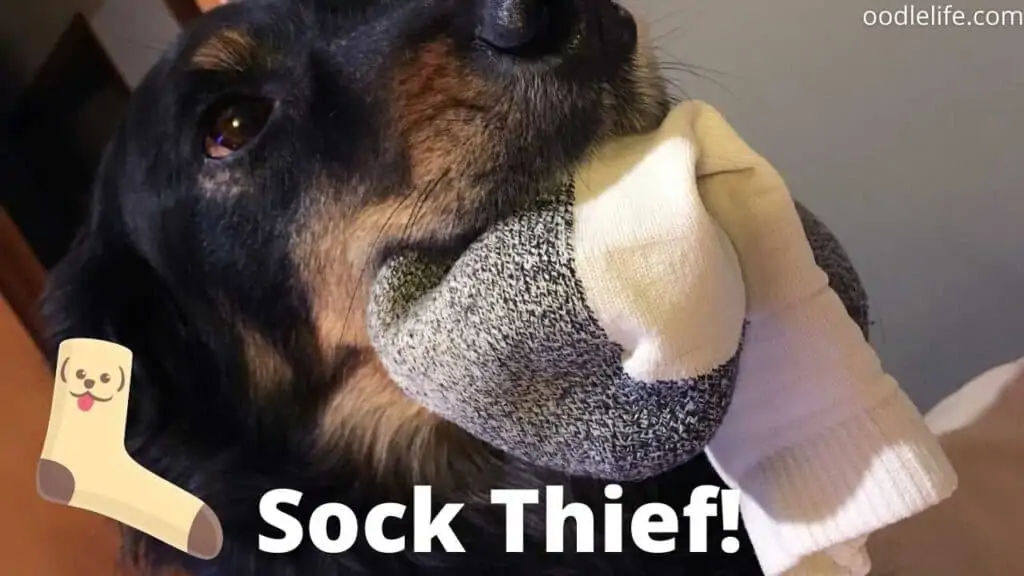
Puppy Eating Sock FAQs
Is a puppy eating socks normal?
Dogs eating socks is not a new thing by any means, and the same can be said for puppies. Puppies are so curious, and unaware of potential threats that it’s not uncommon to find your pup munching on any items within their reach.
Socks are generally indigestible, and so if they do make it through your dog’s system, they’ll do so mostly unharmed, and unabsorbed.
This doesn’t mean to simply wait and see what happens, but if after 3 days you haven’t seen it come out the other side then it’s safe to assume that more serious action will have to be taken.
Regardless, a safe course of action would be to call in to your vet and seek professional advice.
How do I avoid this situation in the future? –
Dogs have fewer taste buds compared to humans, and so when they eat food, they’re not savoring the flavor, they’re looking to devour it quickly. Therefore, ensuring that the puppy’s environment is free from any objects that don’t belong in your dog’s mouth.
Puppies are habitual in nature and they love to sample things, and eat them as a habit.
Which is why if you see this sort of behavior as a puppy, it’s important that you are aware of it so that the pup can overgrow the behavior as they mature.
A good way to keep their mind off of chewing/eating things they shouldn’t, is by providing them with more safe, and durable toys that they can chew on. Keep an eye on repetitive behavioral issues though, as this could be a sign of separation anxiety.
In which case your vet can help you come up with the best solution to fix the situation.
What if I’m not 100% sure they ate a sock? –
Sometimes, even though we think we saw our dog digest the sock, there is still a chance that they were just playing around with it, and lost it somewhere.
However, even if there’s a small chance that your dog might have eaten something they shouldn’t have, you should take them to the vet.
Some items can be difficult to see on an x-ray, and so sometimes your vet may elect to use an endoscope to look inside the puppy’s stomach. But regardless of the method, by taking your dog to a professional immediately, even if you’re not certain that anything’s wrong.
It can help to solidify an answer for you, and ensure that your pup is 100% safe.
My Puppy Ate a Sock Conclusions
All in all, if you’ve reached this page, you are most likely not simply curious as to if puppies can safely consume socks or not…
The answer is a dog being a sock eater is a bad thing – and can be serious. But not always! uch will come down to luck and the size of the dog.
You’re probably here because your puppy has done exactly that, and now you are left wondering what to do.
The good news is that this behavior is extremely common, and is typically something that can be dealt with easily by taking your pup to the vet.
Given that socks are sometimes used for DIY projects like heating pads for a whelping box, supervision is key.
Above all else, your vet will advise you on the best course of action, giving you peace of mind knowing that a medical professional has your puppy’s best interest in mind.
While larger dogs have a better chance of letting the sock pass, it’s always safe practice to seek out advice from a professional for any dog (even if it’s just over the phone).